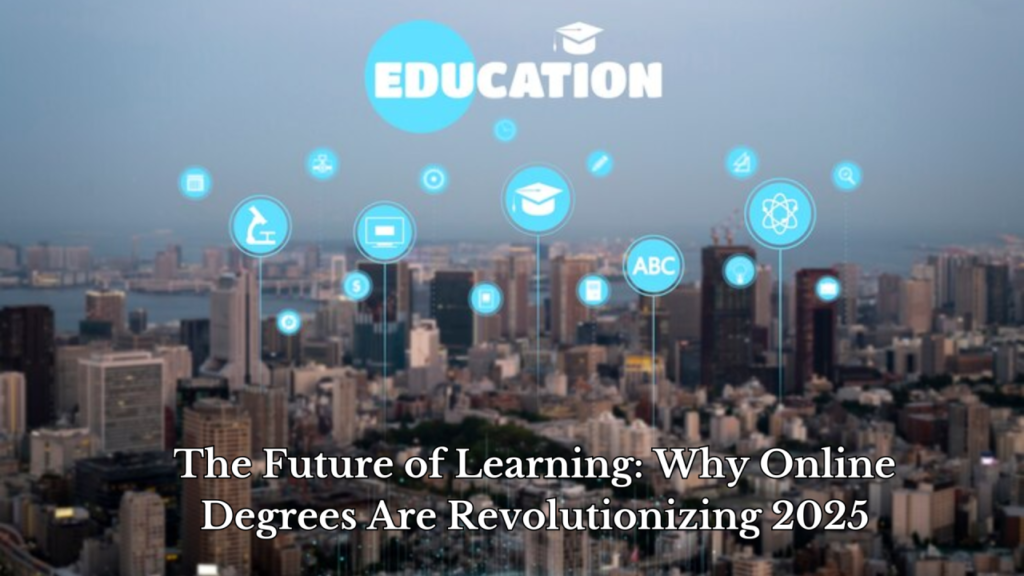For decades, a college degree was seen as a golden ticket to success. Students were told: get a degree, land a good job, and live a better life. But in 2025, the landscape of learning is shifting fast. Employers, students, and educators are all asking the same question: Are traditional degrees still worth it, or are they becoming obsolete?
The Skills-First Economy Is Here

One of the biggest trends in today’s job market is a “skills-first” approach. Companies like Google, IBM, and Amazon are hiring more based on what candidates can do, not where they went to school. In fact, many leading employers no longer require a four-year degree for jobs in tech, marketing, and other fields.
Instead, they are looking for real-world skills—such as coding, digital marketing, UX design, and data analytics. These skills can be learned through bootcamps, short courses, or even self-study online.
As Anjali Sud, the former CEO of Vimeo, once said:
“I care more about what someone can do, than where they went to school.”
Rise of Online Courses and Microcredentials

Platforms like Coursera, edX, LinkedIn Learning, and Udemy are booming. They offer affordable, flexible learning paths that people can take from anywhere. Many of these courses are created by top universities and companies and are available for a fraction of the cost of a traditional degree.
Another rising trend is microcredentials—short, focused programs that teach specific job skills. These include certificates, digital badges, and nano-degrees, which learners can stack over time. Many professionals are now choosing to build their education this way, especially in fast-changing industries like technology and digital media.
Why Students Are Rethinking College
Let’s face it—college is expensive. In countries like the U.S., the average student loan debt is over $37,000. In return, many graduates struggle to find jobs that match their qualifications. Some even end up in roles that don’t require a degree at all.
This reality is pushing younger generations to ask, “Is there a better way?” Gen Z, in particular, is more open to alternative paths like apprenticeships, online courses, or starting their own businesses.
What Employers Really Want
A report by the World Economic Forum shows that 50% of all employees will need reskilling by 2025. The most in-demand skills are no longer tied to academic degrees but include problem-solving, creativity, emotional intelligence, and digital literacy.
This shift means employers are focusing more on:
- Portfolios of work
- Practical experience
- Internships and apprenticeships
- Certifications from trusted platforms
Big tech companies have even launched their own training programs. For example, Google Career Certificates can now replace a college degree in fields like IT support, data analytics, and project management.
Are Degrees Still Useful?

Despite the changes, degrees are not completely obsolete. They still hold value in many fields—especially medicine, law, academia, and engineering—where formal training and certification are legally required.
Also, a degree can still offer:
- A structured learning environment
- Time to explore different interests
- Networking opportunities
- Social and personal development
However, in many other fields, a degree is no longer the only or even the best option.
The Future: A Blended Path?
Experts predict that the future of learning will be more flexible and personalized. Traditional degrees may still exist, but they will likely be combined with other types of learning such as:
- Online courses
- Industry certifications
- Work-based learning (internships, apprenticeships)
- Lifelong learning modules
Universities are also evolving. Many are partnering with tech companies and offering “modular” degrees that allow students to build their education over time.
Governments and Policy Makers Are Taking Note
Countries like Germany and Switzerland have long supported apprenticeship-based systems. Now, others are following their lead. In the UK and parts of the U.S., new “earn and learn” models are being introduced to make education more accessible and job-relevant.
Some governments are also funding free or low-cost skill programs to help citizens stay competitive in a changing world.
What This Means for You
Whether you’re a student, parent, job-seeker, or employer, the message is clear:
Learning is no longer one-size-fits-all.
Here’s what you can do:
- Explore online learning options in your field.
- Focus on building skills, not just collecting degrees.
- Look for ways to combine formal and informal education.
- Keep updating your skills throughout your career.
Final Thoughts
Degrees aren’t dead—but they’re no longer the only path to success. In the future, what you know and can do may matter far more than where you learned it. The smartest learners will be those who adapt, stay curious, and keep growing.
Read More:- Best 10 Out Door Games For Kids









Leave a comment